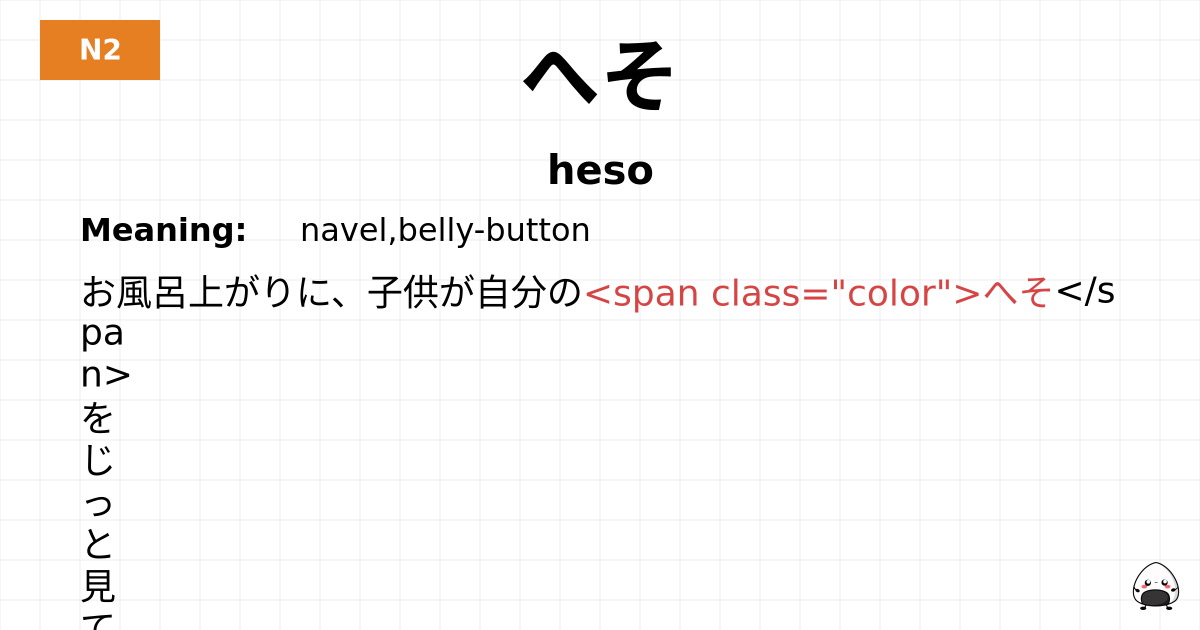お風呂上がりに、子供が自分のへそをじっと見ていた。
を ふろ あがり に、 こども が じぶん の <sぱん cぁss="こぉr">へそ<・sぱん> を じっと みて いた。
O furo agari ni, kodomo ga jibun no <span class="color">heso</span> o jitto mite ita.
After getting out of the bath, the child was staring intently at their own navel.
夏になると、へそ出しルックの若者が増える。
なつ に なる と、 <sぱん cぁss="こぉr">へそ<・sぱん> だし るっく の わかもの が ふえる。
Natsu ni naru to, <span class="color">heso</span> dashi rukku no wakamono ga fueru.
When summer comes, the number of young people wearing navel-baring outfits increases.
昔の人は、へそに泥がつくとお腹を壊すと言っていた。
むかし の ひと わ、 <sぱん cぁss="こぉr">へそ<・sぱん> に どろ が つく と おなか を こわす と いって いた。
Mukashi no hito wa, <span class="color">heso</span> ni doro ga tsuku to onaka o kowasu to itte ita.
In the past, people used to say that if dirt gets in your navel, you would get a stomachache.
